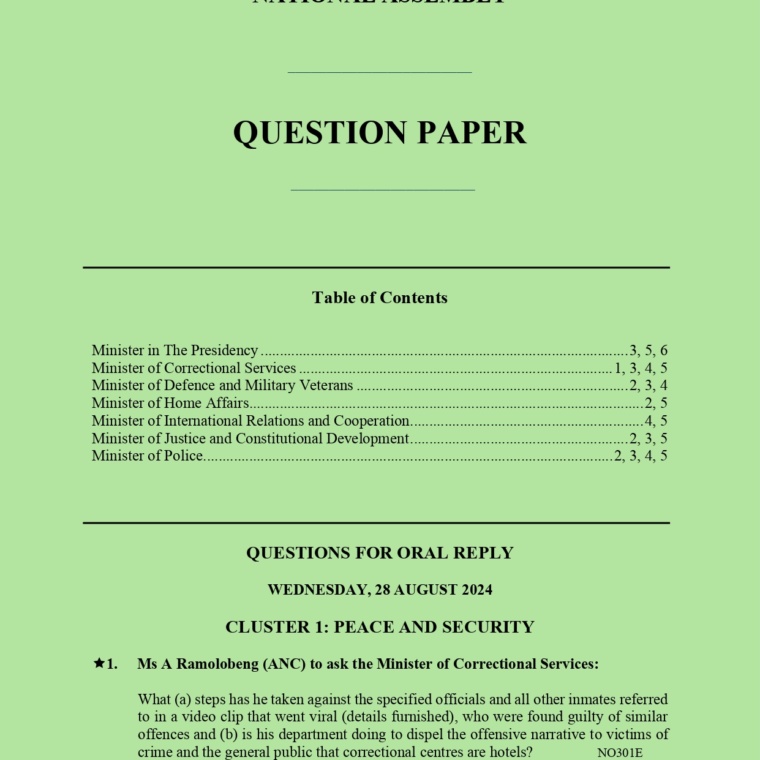SA Must Fast-Track NEV Transition to Remain Competitive – Tau
Trade, Industry and Competition Minister Parks Tau has warned that South Africa must accelerate its shift to New Energy Vehicles (NEVs) or risk losing ground in global automotive markets. Speaking at the 2025 South African Auto Week hosted by NAAMSA in Gqeberha, he said the international auto industry is undergoing its sharpest transformation in a century and South Africa needs to respond decisively.
Tau pointed to major export markets, including the United Kingdom and the European Union, which plan to end sales of new fossil-fuel vehicles by 2035. Together, these regions account for nearly half of South Africa’s vehicle exports.
Auto Industry’s Economic Footprint
Tau underscored the sector’s economic weight, noting that in 2024 it contributed 5.2% to GDP and 22.6% of total manufacturing output. Exports of vehicles and components reached R268.8 billion across 155 markets. The industry supports almost 500,000 direct jobs and around one million across the supply chain.
He said the sector anchors manufacturing capacity, draws steady investment and links South Africa into global supply chains. It also provides the country with a competitive position on the continent.
NEV uptake, though still emerging, is growing. In 2024, 15,611 NEVs were sold domestically, making up 3% of the market. Investment exceeding R12 billion has already flowed into local NEV model production.
Government has amended the Automotive Production and Development Programme (APDP2) to cover electric vehicles and related components. From 2026, a 150% tax deduction will apply to qualifying investment in electric and hydrogen vehicle production. Tau also referred to collaboration with universities and research institutions to develop skills for the evolving industry.
Mineral Resources and Industrialisation
Tau said South Africa and the region hold significant deposits of platinum, manganese, nickel, cobalt and rare earth minerals. He described this as an opportunity to advance beyond exporting raw materials and to build a local battery manufacturing value chain.
He confirmed that government, working with industry and institutions such as the World Bank, has completed a National Critical Minerals Strategy. The plan aims to secure mineral supply for domestic NEV production, draw investment into gigafactories and support battery assembly, recycling and research hubs.
Regional Growth Through AfCFTA
Africa is becoming an increasingly important market. In 2024, South Africa exported R48.1 billion in vehicles to the continent, up 12.4% year-on-year.
Tau said the African Continental Free Trade Area (AfCFTA) provides duty-free access beyond SADC, strengthens regional value chains and encourages infrastructure development. It also enables cooperation on battery manufacturing and mineral beneficiation.
South Africa is advancing an African Auto Pact to align policies and rules of origin, attract investment and boost regional manufacturing capacity.
Tau said the aim is to develop a continental battery industry that combines Africa’s mineral resources with South Africa’s manufacturing and research capabilities, positioning the sector for growth across the continent.





